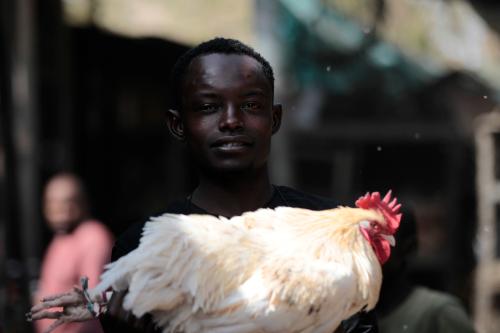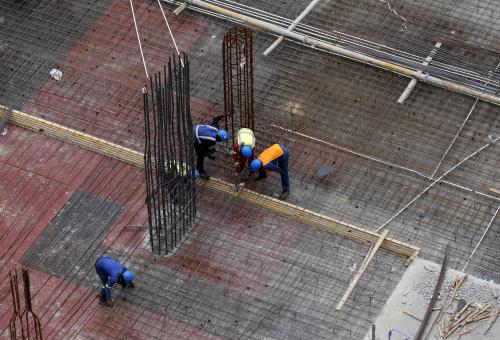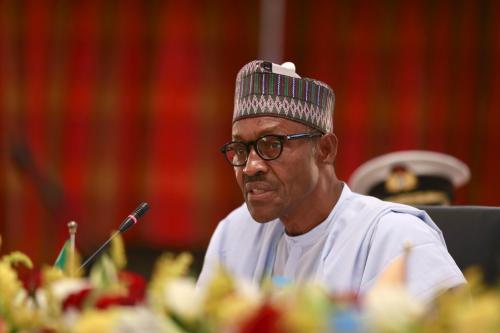South Africa’s SABMiller accepts offer from Belgian beer company Anheuser-Busch InBev
On Tuesday, Anheuser-Busch InBev made a $104 billion proposal for the acquisition of rival brewing company, South Africa’s SABMiller. Directly behind AB InBev, SABMiller, which is known for producing the beer brands Fosters, Miller, Grolsch, and Peroni, is the second-largest multinational brewing company in the world, with annual revenues of $22 billion. This merger, if approved by regulators, creates a company with the potential of generating $70 billion a year.
As the maker of Budweiser, AB InBev depends on its home markets in North America and Europe for product sales. However, sales have been declining in both of these regions due to intense competition with the emergence of increasingly popular craft beer brands. Since SABMiller manages operations in 75 foreign countries—15 of which are in Africa—could potentially bring the diversification AB InBev is looking for. With a SABMiller merger, AB InBev can enter the rapidly growing African market—where SABMiller earns 29 percent of its profits—with a particular gateway to over $7 billion in South African revenue. Critics of the deal warn that, with this merger, one in every three beers in the world will be produced by the same company. In fact, because both companies are so large, regulators and analysts estimate that SABMiller could be forced to sell nearly 30 percent of its company shares in order to avoid the repercussions of breaking antitrust laws.
AB InBev has also recently announced that it plans to sell $55 billion worth of bonds to help fund the deal. This would be the world’s largest corporate bond sale since Verizon’s $49 billion acquisition of Vodafone in 2013.
Kenya releases implementation plan for special economic zones
This week, the government of Kenya announced that policies around its new special economic zones (SEZs) will enter into full effect by the first financial quarter of 2016. Recently signed into law by President Kenyatta, the Special Economic Zones Act that created these hubs aims to be a roadmap to increased trade activity and rapid industrialization. For example, the special economic zones will cut transportation costs because they will allow for the production of goods to take place much closer to raw material sources. Similarly, in some SEZs, enterprises will have discounts on their power bills due to proximity to power plants. The SEZs will also create significant tax cuts for investors in the zones, including VAT exemption and a reduced corporate tax from 30 percent to 10 percent for a period of 10 years.
Kenya is not the first country to implement SEZs: Specialized zones are becoming a common method for fostering economic growth in developing countries. In fact, many economists often attribute China’s rapid economic growth to the use of SEZs. The method is popular in many African countries, replacing its failing export processing zones. However, a World Bank report analyzing the success of African SEZs (including in Ghana, Kenya, Lesotho, Nigeria, Senegal, and Tanzania), showed that African countries have seen more mixed results than outright successes. Outcomes from different contexts mixed with different zone models vary greatly. For example, Ghana’s single factory model—in which the government develops a protected single factory unit first and then eventually opens up the zone to other private firms in order to create a network of SEZs— has found great success, while others less so.
The United States sends troops to Cameroon to aid in the fight against Boko Haram
On Wednesday, October 14, President Barack Obama announced that the United States would be sending U.S. troops to Cameroon in order to aid in the fight against Boko Haram. The 90 troops that were deployed on Monday will be joined shortly by another 210 military personnel. Importantly, while the president stated that the U.S. presence in Cameroon will be indefinite, ending when U.S. support is “no longer needed,” he emphasized that the role of the U.S. military in Cameroon will be “to conduct airborne intelligence, surveillance, and reconnaissance operations in the region,” and that it would not engage in combat operations.
The terrorist group Boko Haram has been spreading violence across Nigeria since 2009, in order “to rid it of Western influence.” Amnesty International claims that, in this year alone, over 3,500 civilians have died in the conflict. Though Boko Haram’s main activity has been in Nigeria, violence and suicide attacks have been spilling over its borders into neighboring countries, especially Chad and Cameroon. In fact, over 100 Cameroonians have died in attacks by the terrorist groups since July. Just recently, on October 11, nine people died in Cameroon from two suicide attacks while in Chad 41 were killed in three explosions.
So far, the fight against Boko Haram has been a regional effort among Nigeria, Niger, Chad, and Cameroon, a fact that the White House has emphasized. Despite the United States’ little action against Boko Haram, this most recent engagement in the conflict is not singular, with plans to deploy two Cessna surveillance aircraft to Niger in the coming months, and the assistance of aircraft and personnel in Nigeria in the search for the kidnapped Chibok girls last year. So far, though, the U.S. has remained reluctant to fully bolster the Nigerian military, specifically due to claims of incompetence and abuse—including torture and murder alleged in a June 2015 Amnesty International report. The Nigerian military, though, has been slowly making in-roads into Boko Haram territory, according to Voice of America, retaking the regionally important commercial town Gamboru Ngala in September.
In related Nigerian news, President Muhammadu Buhari continues his campaign against corruption in the oil-rich country. On Friday, The New York Times reported: “He has put many public projects on hold to review the contracts, and ordered many government ministries, departments and agencies to consolidate their bank accounts for closer monitoring of financial transactions. He has overhauled the management of the state oil company, while also moving to retrieve stolen money.” In addition, among other high-profile oil-sector actors, earlies this month former oil minister Diezani Alison-Madueke was arrested over accusations of graft during her time in office.





Commentary
Africa in the news: Anheuser-Busch buys South Africa’s SABMiller, Kenya announces SEZ implementation plan, and US sends noncombat troops to Cameroon
October 16, 2015